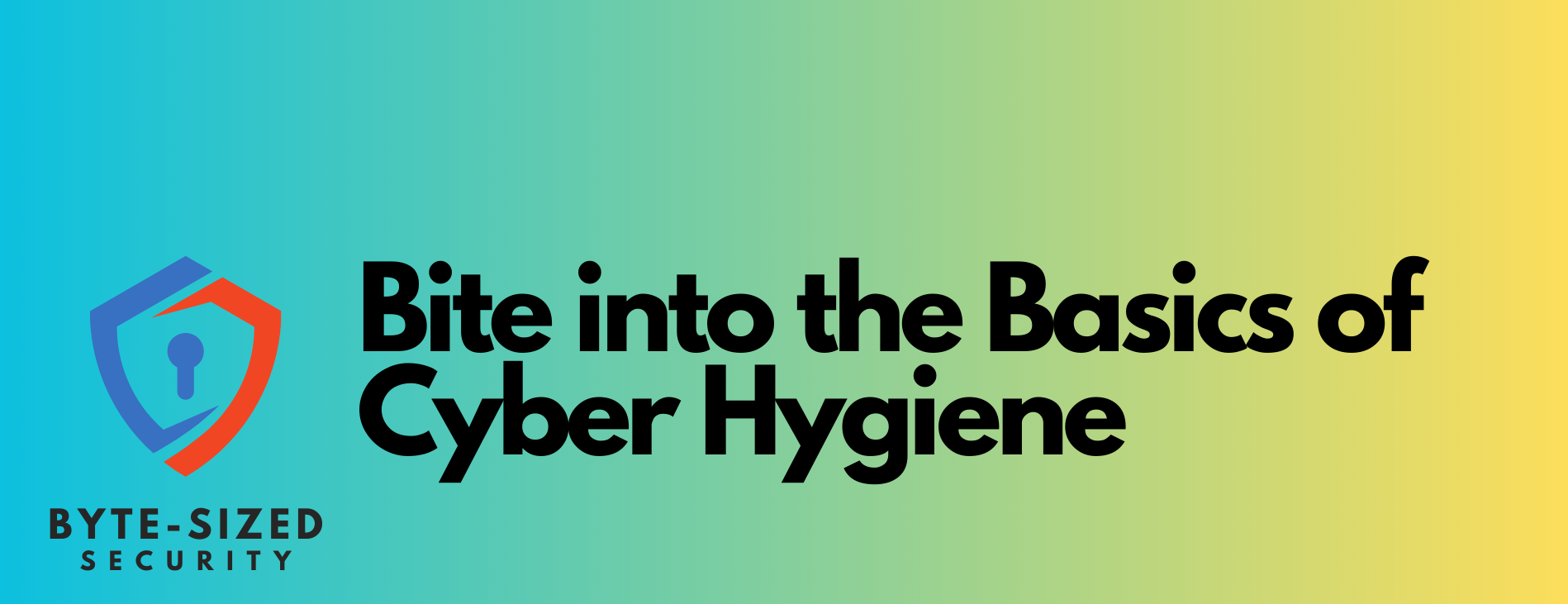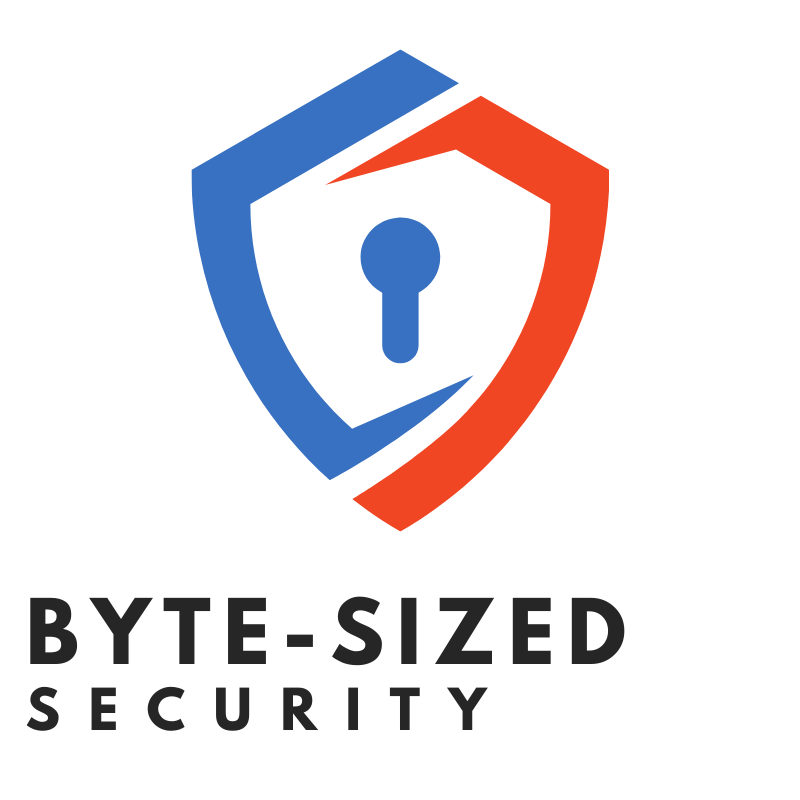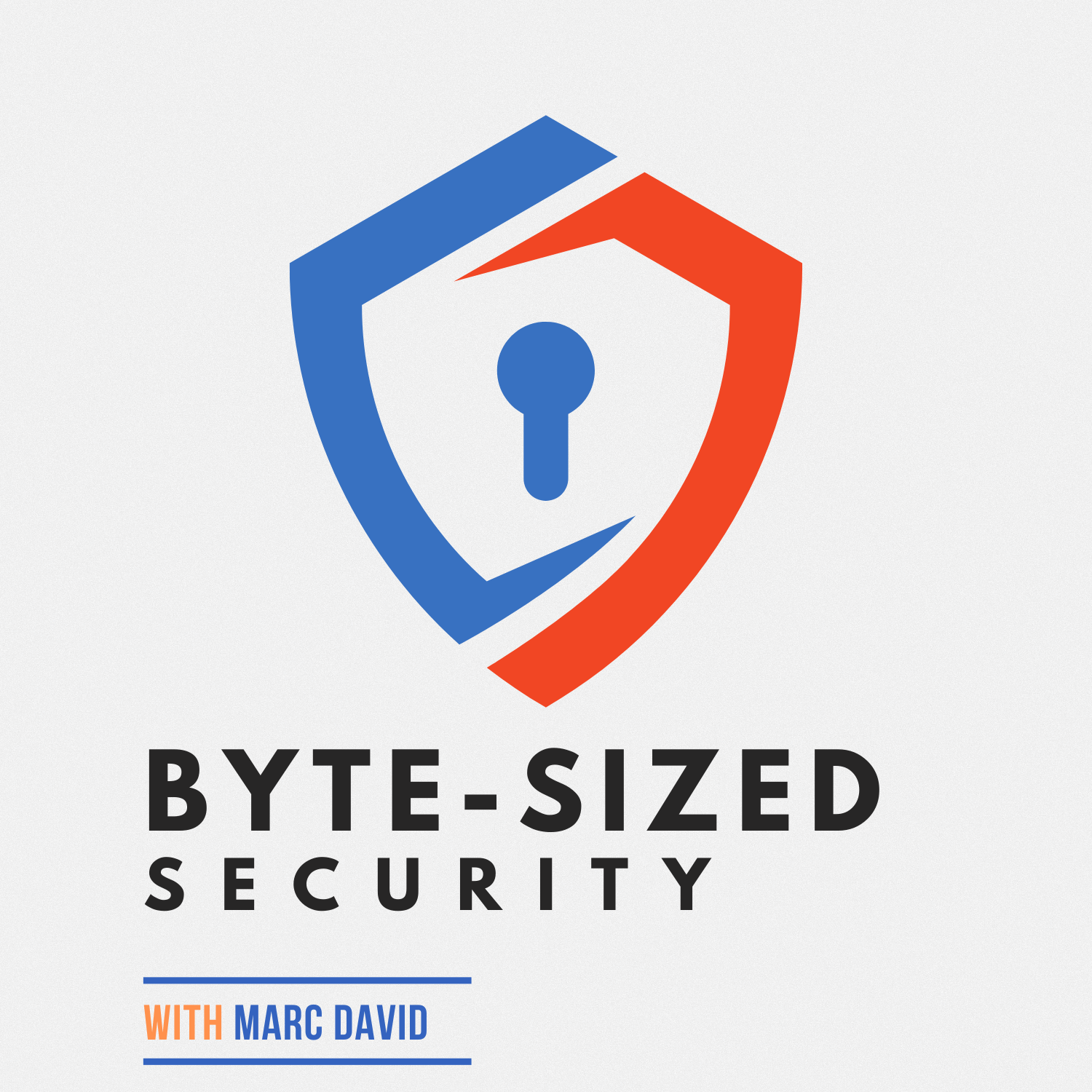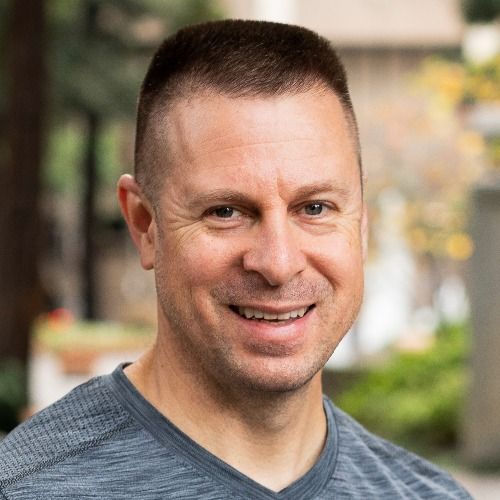Ep18: The Illusion of Expertise: Are YouTube's Security Gurus Really in the Trenches?
Show Notes for Byte-Sized Security Episode: "The Illusion of Expertise: Why YouTube's Security Gurus Aren't in the Trenches"
In this eye-opening episode, host Marc David takes a critical look at the proliferation of self-proclaimed cybersecurity 'experts' on YouTube. We delve into the mechanics of content creation, the business model behind it, and the glaring gap of practical experience. Ready for a reality check? Tune in!
📌 Timestamps
- 00:00 - Introduction: The Fluff & Stuff of Cybersecurity YouTube Videos
- 01:46 - Core Argument 1: The Content Mill
- 03:25 - Core Argument 2: The Business of YouTube
- 05:28 - Core Argument 3: Missing Practical Experience
- 07:15 - Counter-Arguments: The Other Side of the Coin
- 08:58 - Conclusion: A Byte-Sized Reality Check
- 10:15 - Call to Action & Community Poll: How Do You Vet YouTube Cybersecurity Experts?
🎯 Key Takeaways
- Expertise ≠ Popularity: A large subscriber count doesn't necessarily make someone an authority in cybersecurity.
- Content Mills: The alarming rate at which some YouTubers churn out content may impact the quality and depth of their advice.
- Business Over Authenticity: Learn why monetization models can clash with the ethical considerations of cybersecurity.
- The Importance of Practical Experience: There's no substitute for hands-on, in-the-field know-how.
🗳️ Community Poll
Don't forget to participate in our YouTube community poll: "How do you vet the credibility of a cybersecurity expert on YouTube?" Click here to vote!
---
I do hope you enjoyed this episode of the podcast. Here's some helpful resources including any sites that were mentioned in this episode.
--
--
Find subscriber links on my site, add to your podcast player, or listen on the web players on my site:
--
Support this Podcast with a Tip:
Transcript
Hey there, you incredible humans of the Byte-Sized Security community!
2
:Marc David here, and have I got
a spicy topic for you today.
3
:We're turning on the heat and
cooking up some truth bombs about the
4
:world of YouTube's self-proclaimed
cybersecurity 'experts.'
5
:Now, let's rewind a few years.
6
:Picture me, knee-deep in my Information
Tech job, hungry for a shift into the
7
:dynamic landscape of Information Security.
8
:What did I do?
9
:I did what we all do:
went on a YouTube binge.
10
:Video after video, short after
short, promising the "Top 5
11
:Essential Skills," or the "Ultimate
Pathway to a Cybersecurity Career."
12
:And man, these videos had
views ... Like, astronomical numbers!
13
:But here's where it gets interesting.
14
:These videos, as flashy and
keyword-stuffed as they were, felt
15
:like they were all sizzle and no steak.
16
:The advice was so...
17
:fluffy.
18
:You know, the kind of fluff that
makes you go, "Well, that was a good
19
:show, but what did I really learn?"
20
:And this got me thinking: When
did cybersecurity get its own
21
:version of fitness influencers or
arketing gurus from the early:
22
:You know, the ones who pitch you a
'life-changing' course every two minutes?
23
:Views and subscribers can
create the illusion of
24
:credibility, but let's get real.
25
:Numbers alone don't make you an expert.
26
:Just because someone can put together
a snazzy thumbnail and recite buzzwords
27
:doesn't mean they're down in the
trenches, navigating the complex
28
:terrains of real-world cybersecurity.
29
:So today, Byte-Sized Security fam,
we're diving deep into the myths, the
30
:illusions, and the harsh realities of
this YouTube 'expertise' ecosystem.
31
:Buckle up, because it's going to
be a reality-check rollercoaster!
32
:Alright, let's dive right
into our first core argument:
33
:The infamous "Content Mill."
34
:You know what I'm talking about.
35
:It's that hamster wheel of content
creation where YouTubers are cranking
36
:out new videos faster than you
can say "zero-day vulnerability."
37
:I mean, they're more consistent than my
morning coffee, but is that a good thing?
38
:Let's lay it out.
39
:Many of these 'gurus' are pushing out
daily, or heck, even twice-daily videos.
40
:And here's the million-dollar question:
If they're churning out content at
41
:the speed of light, when are they
actually practicing cybersecurity?
42
:When do they have the time to keep
their skills razor-sharp, engage in
43
:real-world projects, or, you know, sleep?
44
:Imagine this.
45
:Say you're a full-time chef.
46
:If you spent all your time filming
cooking tutorials, when would you actually
47
:serve customers in a real restaurant?
48
:See where I'm going with this?
49
:We all know that cybersecurity
is an ever-evolving field.
50
:I mean, the threat landscape changes
faster than the YouTube algorithm itself!
51
:So how can someone who is constantly
feeding the content beast stay
52
:up-to-date on the latest threats,
solutions, and technologies?
53
:And here's another kicker: The
YouTube algorithm loves frequency.
54
:The more you post, the
more visibility you get.
55
:But let's not confuse
visibility with credibility.
56
:It's a myth, a dangerous myth.
57
:So, the next time you come across a
'Cybersecurity Guru' on YouTube who has
58
:a new video out every day, ask yourself:
Are they an expert in cybersecurity, or
59
:are they an expert in content creation?
60
:Because, those are two
very different skill sets.
61
:Now that we've disarmed the Content
Mill trap, let's slide into the next
62
:hot topic: The Business of YouTube.
63
:Yep, you heard that right.
64
:YouTube isn't just a platform; it's
a full-blown, money-making machine.
65
:We're talking AdSense, affiliate
links, sponsorships, and the pièce de
66
:résistance, courses and merchandise.
67
:Ever noticed how many of these
'Cybersecurity Gurus' will interrupt their
68
:"10 Best Security Practices" video to
pitch you a VPN service or an exclusive
69
:"Master Cybersecurity in 30 Days" course?
70
:It's like we've gone from
learning about ransomware to
71
:participating in a live infomercial.
72
:And let's be honest, who can blame them?
73
:If you've got thousands, or dare I
say, millions of subscribers hanging on
74
:your every word, why not monetize it?
75
:After all, clicks lead to cash.
76
:But here's the crux of it all: How much of
that content is tailored to meet Google's
77
:algorithmic demands versus meeting the
actual educational needs of the audience?
78
:Are they being paid to say what they
say or do they work for the company?
79
:This is the point where we have to
separate the YouTuber from the expert.
80
:Being good at SEO, keywords,
and thumbnails—that's marketing,
81
:my friends, not cybersecurity.
82
:And hey, there's nothing wrong with
being a brilliant marketer, but don't
83
:dress it up as expertise in a field as
critical and evolving as cybersecurity.
84
:So here's my mic-drop moment for this
segment: While YouTube might be a
85
:business for these 'gurus,' cybersecurity
is a livelihood for many of us.
86
:It's a responsibility.
87
:And that responsibility should
never, ever be overshadowed by
88
:the glitz and glamour of high view
counts and affiliate commissions.
89
:When it comes to genuine expertise,
revenue is not the most reliable KPI.
90
:It's like saying the most expensive
antivirus software must be the
91
:best, spoiler alert, it's not.
92
:So, the next time you're engrossed
in a YouTube video pitching the next
93
:"game-changing" cybersecurity tool,
ask yourself: Is this for me, or
94
:is this for the YouTuber's wallet?
95
:Let's get into our final core
argument, and it is it a big one.
96
:Missing Practical Experience.
97
:If you've been nodding along so
far, this is where you'll want to
98
:turn up the volume because we're
going straight for the jugular.
99
:So you've watched a dozen tutorials on
how to set up a firewall, configure a
100
:VPN, or even conduct a penetration test.
101
:Fantastic, right?
102
:Wrong!
103
:Anyone can follow a script, but how
many of these YouTube gurus have
104
:actually set up an enterprise-grade
firewall or led a red-team operation?
105
:See, there's a chasm as wide as
the Grand Canyon between talking
106
:the talk and walking the walk.
107
:Cybersecurity is more than a listicle
of "Top 10 Best Practices"; it's
108
:about solving real-world problems,
often under tremendous pressure.
109
:You won't learn incident
response from a 10-minute video.
110
:You won't understand the
intricacies of risk management
111
:from a neat slideshow presentation.
112
:Heck, you can't even grasp the
complexity of ethical hacking
113
:from a '5 Easy Steps' guide!
114
:And yet, many of these YouTubers
present themselves as all-knowing gurus.
115
:Why?
116
:Because practical experience is
hard to verify on a platform where
117
:the loudest voice often drowns
out the most knowledgeable one.
118
:Rewind and listen to that again.
119
:So here's my challenge to you.
120
:The next time you stumble upon
a video that claims to have all
121
:the answers, dig a little deeper.
122
:What's their real-world experience?
123
:Have they been in the trenches,
or have they been too busy
124
:building their YouTube empire?
125
:Let's stop mistaking presentation
skills for practical skills.
126
:Cybersecurity is a field that
demands both theoretical knowledge
127
:and hands-on experience, and you
can't fake the latter, no matter how
128
:charismatic or SEO-savvy you are.
129
:I can already hear the keyboards
clicking away, drafting up some
130
:passionate counter-arguments.
131
:And hey, that's what Byte-Sized Security
is all about, open, honest dialogue.
132
:So let's take a moment to address some
of the arguments that you might be
133
:formulating in your heads, or you know,
already posting in the comments section.
134
:First up, the Value of
Educational Content.
135
:Look, I get it, not every
YouTuber claiming expertise in
136
:cybersecurity is a charlatan.
137
:Some are genuinely committed to educating
the public, and that's commendable.
138
:These platforms can be excellent
starting points for people who
139
:are curious about the field.
140
:After all, who doesn't
love a good how to video?
141
:Next, we've got what I like to call
The Digital Age of Self-Made Experts.
142
:The internet has democratized education,
and YouTube is a big part of that.
143
:It's entirely possible for someone
to become highly knowledgeable
144
:in a subject like cybersecurity
solely through online resources.
145
:I mean, some of our brightest
minds are self-taught, so let's
146
:not completely dismiss that route.
147
:And hey, let's not forget the Platform
for Networking and Community Building.
148
:YouTube can be a wonderful place
to connect with like-minded
149
:individuals, share ideas, and even
get that elusive foot in the door.
150
:Many YouTubers collaborate with
industry professionals, bringing
151
:multiple perspectives to the table.
152
:But here's the kicker.
153
:None of these counter-arguments negate
the need for practical experience,
154
:nor do they make up for the potential
conflicts that arise when content
155
:creation becomes a business model.
156
:The point is, while YouTube can
supplement your cybersecurity education,
157
:it shouldn't replace real-world
experience or formal training.
158
:We've navigated the labyrinthine
world of YouTube cybersecurity
159
:gurus, from content mills to business
models, and the all-important missing
160
:element of practical experience.
161
:If you've stuck with me till now,
give yourselves a pat on the back
162
:because this, my friends, is the type
of conversation that needs to be had!
163
:Now, it's easy to get swept up in the
allure of quick tips and catchy titles.
164
:Hey, we're only human.
165
:But let's remember: cybersecurity isn't
a game; it's a discipline that impacts
166
:every facet of our digital lives.
167
:The next time you click on a video
claiming to offer 'Expert Cybersecurity
168
:Advice,' let's be discerning consumers.
169
:Ask questions, demand
qualifications, and most importantly,
170
:cross-reference that info.
171
:Don't just take it at face value
because it's presented with slick
172
:graphics and a charismatic host.
173
:I'll leave you with this:
expertise isn't defined by
174
:subscriber counts or ad revenue.
175
:It's defined by a commitment to
learning, practical experience, and
176
:a genuine desire to make the cyber
world a safer place for everyone.
177
:Thank you for being a
part of today's deep-dive.
178
:If you've got something to
say, you know the drill.
179
:Leave a comment, share this
episode, and let's keep this
180
:crucial conversation going!
181
:But the conversation doesn't end here.
182
:We're launching a community poll right
on our YouTube channel at byte sized
183
:security dot show, forward slash, youtube.
184
:Look for the Community section.
185
:I want to hear your take.
186
:The question we're posing is:
187
:"How do you vet the credibility of
a cybersecurity expert on YouTube?"
188
:Your options are:
189
:1: Subscriber Count.
190
:Does a big following mean
they know their stuff?
191
:2: Content Depth.
192
:Are you swayed by the level
of detail in their videos?
193
:3: Real-world Experience.
194
:Do you look for signs
they've been in the trenches?
195
:4: Community Engagement.
196
:Does their interaction with the
community influence your view?
197
:5: Other.
198
:Got a different yardstick?
199
:We're all ears!
200
:Head on over to the poll right
now on our YouTube channel at byte
201
:sized security dot show, forward
slash, youtube and cast your vote.
202
:I'll be diving into the results
in an upcoming episode, and
203
:who knows, your input might
just spark our next big debate!
204
:So go ahead, click on that poll, and
let's keep this cyber-dialogue buzzing!
205
:I'll drop some links and
resources mentioned in this
206
:podcast into the show notes.
207
:Until next time, stay safe, stay
informed, and remember: the best
208
:firewall is a critical mind.





